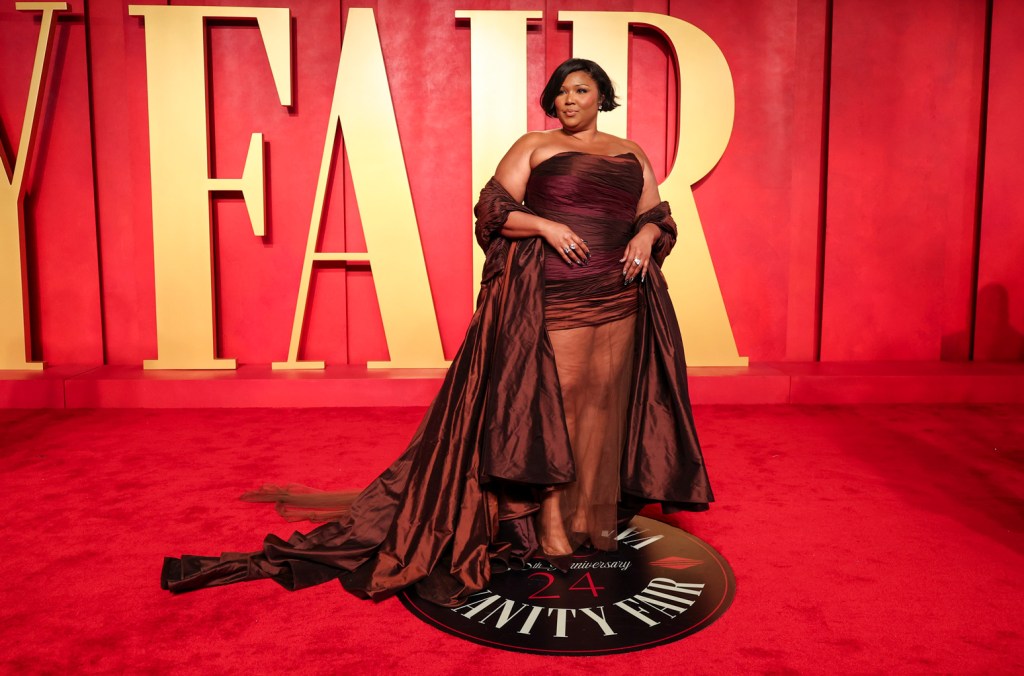
Christopher Polk
With performances by Lizzo, Queen Latifah, Ben Platt and Cynthia Erivo, plus appearances by former presidents Barack Obama and Bill Clinton, a fundraiser for Joe Biden at Radio City Music Hall on Thursday (Mar. 28) in New York could jump-start the incumbent’s so-far minimal public support from Democratic-leaning music stars for the upcoming 2024 presidential election.
“You’ll see more of that in the next couple of months,” predicts Hilary Rosen, former head of the Recording Industry Association of America (RIAA) and a longtime Democratic-leaning political analyst, referring to support from artists for the Biden campaign.
It’s still early in the presidential campaign, but at this point, Biden’s endorsements from top music stars are a shadow of those he received in 2020, including from Taylor Swift, Beyoncé, Madonna, Ariana Grande, Cher and Melissa Etheridge. James Taylor and Lenny Kravitz performed at late-2023 fundraisers for the incumbent president, but beyond that, artists have mostly been silent.
That’s partially by design. Campaign representatives say the most impactful time for celebrity endorsements is late summer and fall, when more voters are paying attention to the election. A prime example of this timing was Bruce Springsteen‘s narration of an ad about Biden’s hometown, Scranton, Pa., that came out on Halloween 2020. “When it comes to celebrities, as you get closer to the election, more [of them] get engaged,” says Chris Korge, national finance chairman for the Biden Victory Fund. “Some help us with fundraising, others help us with grassroots and campaign events.”
But several Democratic supporters in the music business say they’re concerned about the lack of stars’ involvement in the election thus far. Part of that has to do with an uneventful primary season, with little rivalry within the candidates’ parties — President Obama drew early support from artists and celebrities when he was battling Hillary Clinton for the Democratic nomination in 2008, but not as much in 2012 when he was an incumbent running essentially unopposed. “I would not be surprised [by] a very high level of engagement as time goes on,” says Cliff Chenfeld, who founded Razor & Tie Records and created Kidz Bop and hosts events for Democratic candidates. “But I’ve seen two or three shows a week this year and I have yet to hear one artist mention one word about anything political or topical. I’ve heard somebody say, ‘Wow, we could be in for a tough year,’ but I haven’t really heard anything beyond that.”
In 2020, as was the case with Obama in 2008, Biden was the “change” candidate — an alternative to a Republican president after years of policies that were largely unpopular among young voters, on topics ranging from climate change to LGBTQ rights. Due to a primary battle that year with a more progressive rival, Sen. Bernie Sanders, Biden had to wait a few months for artists to support his candidacy. As late as August of that year, John Legend, Andra Day and Dave Matthews were among his few prominent music-star supporters.
Eventually, artists lined up to support Biden in 2020, but the president faces stronger headwinds among progressive artists and young voters in 2024, due in part to the Israel-Hamas war in Gaza. “I understand the frustration. He’s older, he hasn’t gotten any more inspiring and the idea that [he’ll be] a transitional candidate to bridge the gap from one generation to the next, that’s obviously not ringing true,” says Jordan Kurland, manager for Death Cab for Cutie and The Postal Service who has organized top artists on behalf of Democratic candidates. “But I’m voting for him because he’s our candidate, and obviously I’m going to choose democracy over what comes next under Trump. And I do think [Biden] has done a good job.”
Some Democrats in the music business say both of Biden’s campaigns, unlike Obama’s in 2008 and 2012, haven’t spent much time on outreach to music stars and their representatives. But they encourage the campaign to deploy artists with dependable fan bases in swing states from Pennsylvania to Arizona as quickly as possible. A music-business source who worked with the Biden campaign in 2020 on planning events and generating artist support came away frustrated: Biden campaign reps, he says, were “not enthusiastic four years ago, I can tell you that much. I have no reason to think they’re going to be more enthusiastic now.” The source adds that he wishes this year’s Biden campaign was “further ahead” in working with politically engaged artists.
Biden’s campaign plans to employ a celebrity-heavy “surrogate” program to oversee its artist outreach, as it did in 2020 when Olympic figure-skating champion Michelle Kwan served as director. Although that program has yet to kick in, many in the music business are confident the campaign won’t need to take elaborate measures to garner artist support. “You always hear about malaise and unenthusiasm,” says Peter Shapiro, a New York concert promoter and 20-year board member for Headcount, a nonpartisan group that has registered 1 million voters since 2004. “We always see it ramp up. People will realize the choices in front of them are significant.”
Several Biden supporters in the music business say that even if Democratic-leaning artists are hesitant to wholeheartedly endorse the president, they can speak in favor of down-ballot candidates or issues like abortion or climate change. Or they can criticize former President Donald Trump, who has artist supporters of his own, including conservative musicians Kid Rock and Jason Aldean.
Will any of it matter? In 2016, Beyoncé, Jay-Z, Springsteen, Katy Perry and other music stars performed at Hillary Clinton rallies days before the election, and she lost. “Will Taylor Swift save Joe Biden? Will she be that magic bullet that will save him from being six points down from Donald Trump?” Rosen asks facetiously.
“Let’s be realistic — most artists are not going to change a single person’s vote,” Rosen adds. “What they do is draw a crowd for voter registration and raising money. That’s what all campaigns want them for.”